Turn a passion for the environment into professional expertise
Climate change meets its match in the kind of scientists, policymakers and professionals who see global environmental challenges as opportunities, not obstacles. From climate modeling powered by machine learning to sustainable urban development to circular economy engineering, Oregon State University's online programs will equip you with the skills and knowledge you need to make a lasting impact in your community and around the world.

As one of only three land, sea, space and sun grant institutions in the United States, Oregon State's expertise extends from the geologic layers of the Earth to the farthest reaches of the cosmos.
Explore all that OSU has to offer in natural resources online bachelor's degrees.
Browse programs
40 programs available
Undergraduate degrees (15)
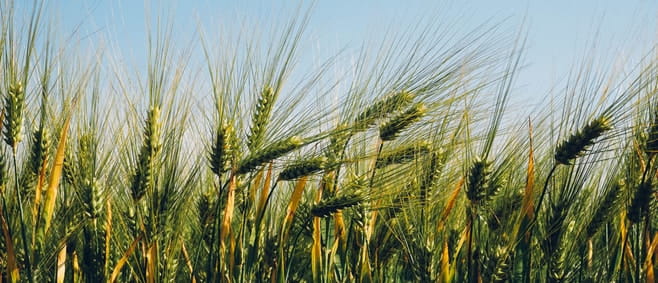
Agricultural Sciences
B.S.
Design your own degree in agriculture through flexible curriculum that spans subjects such as agriculture production, leadership, agribusiness, world food crops and sustainability.
Ag safety and health Communicating ag to the public Environmental law, policy and economics Farm implements Engine theory and operation Organic farming Environmental biology
Agronomist farmer or rancher Animal breeder Soil or water conservationist Grower or production manager Ag communications; marketing or sales Ag educator Extension agent

Animal Sciences
B.S.
Prepare for work with domesticated animals like cattle, sheep, horses and dogs in a science-driven program exploring animal nutrition, behavior, reproduction and genetics.
Animal nutrition Reproductive physiology Animal genetics Livestock production Companion animal care Animal behavior analysis Animal products quality assurance
Animal shelter manager Equine boarding stable manager Research laboratory technician Food quality assurance manager Livestock production manager Animal health sales representative Pharmaceutical sales representative

Botany
B.S.
Study the biology of plants and fungi through subjects like plant structure, biodiversity and genetics to better understand human impact on plant and ecological systems.
Plant genetics Mycology Plant ecology Lichenology Plant pathology Bryology Cell and molecular biology
Botanist Ethnobotanist Horticulturist Plant pathologist Naturalist Biotechnologist Plant geneticist Field botanist Plant scientist
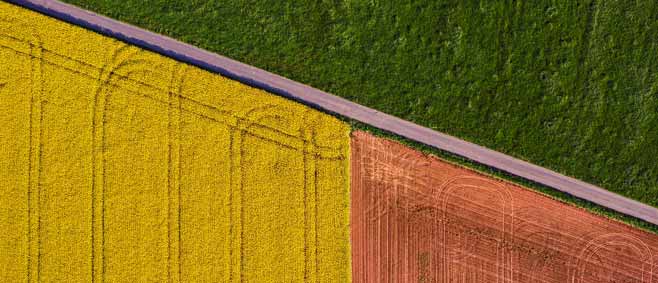
Crop and Soil Science
B.S.
Dig deep into crop and soil science with courses related to natural systems, field crop agriculture, water and soil resource management, and sustainable agriculture practices.
Crop production Soil morphology and classification Weed management Seed science and technology Plant pathology Insect pest management Irrigation principles and practices Plant ecology
Agronomist Soil conservationist Seed technologist Crop field scout Farm manager Crop analyst Soil health coordinator Field soil scientist Precision agricultural technician Soil mapping technician Land use planner

Environmental Economics and Policy
B.S.
Develop a strong economic skill set – supplemented by education in biological, physical or social sciences – as you prepare for a multifaceted career in environmental analysis.
Applied economics Natural resource economics and policy Measuring resource and environmental impacts Microeconomics Macroeconomics Environmental law Benefit-cost analysis
Environmental economist Land use planner Data analyst Research analyst for environmental nonprofit Environmental policy specialist Compliance analyst Pre-law
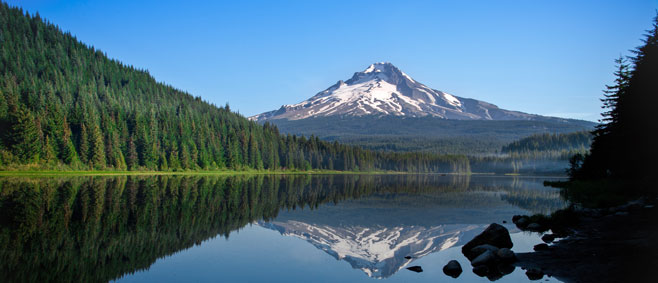
Environmental Sciences
B.S.
Pursue a rigorous, integrative education in science and policy as you learn to address global challenges like climate change, pollution and biodiversity loss as an environmentally focused scientist or analyst.
Field sampling (water/air/soil/vegetation) Data analysis GIS Remote sensing Wetland delineation Environmental technical writing Environmental problem-solving
Environmental scientist Ecologist Nature interpreter Environmental educator Climate analyst Environmental consultant Pollution regulations compliance officer Hydrologist/Water resource specialist Restoration planner
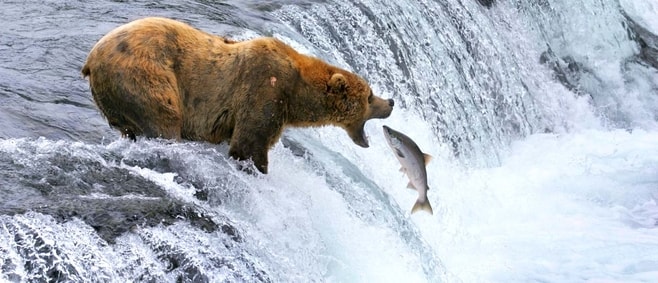
Fisheries, Wildlife, and Conservation Sciences
B.S.
Learn how to maintain balance for fish, wildlife and the delicate environments they live in through science-based curriculum that emphasizes applied ecological principles.
Fish, avian and wildlife conservation Population dynamics Marine ecology Animal genetics Vertebrate physiology Habitat restoration Animal care and rehabilitation Ecosystem ecology
Fisheries wildlife or marine biologist Fish and wildlife law enforcement Endangered species biologist Hatchery manager Habitat restoration biologist Wildlife area manager Animal caretaker
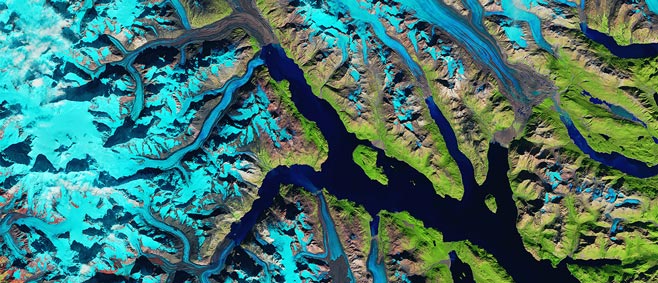
Geography and Geospatial Science
B.S.
Use the power of big data analysis and visualization technologies to explore humanity's relationship with our physical environment and natural, cultural and built resources.
Geographic information systems Remote sensing Geovisualization and cartography Geographic field research Physical geography Web mapping Geospatial analysis
GIS analyst Land use planner Planning and resource manager Cartographer Remote sensing specialist Land surveyor Photogrammetrist CAD/GIS developer Geospatial intelligence analyst Conservation specialist
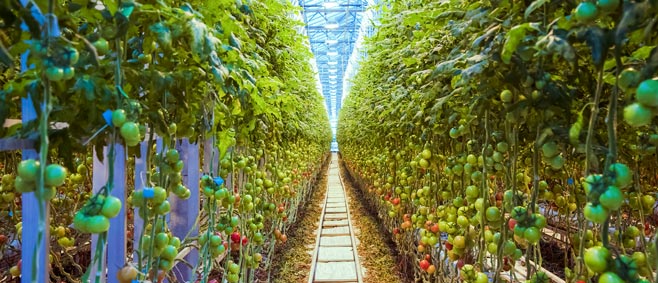
Horticulture
B.S.
Grow your skills in horticultural production through the study of topics such as plant pathology, pest and weed management, applied ecology and agricultural policy.
Plant nutrition Sustainable landscapes Urban forestry Permaculture Turf grass maintenance Plant breeding Medicinal plants
Urban farmer Landscape designer Greenhouse manager Plant breeder Arborist Vineyard manager Soil and plant scientist Urban and regional planner Athletic field director

Marine Studies
B.A. or B.S.
Navigate social, political and cultural issues of marine systems through the lens of the humanities, arts and sciences — with a focus on sustainability.
Marine ecology Critical thinking Cultural resource management Scientific reasoning Communication Marine environmental justice Ethical reasoning
Marine policy analyst Coastal communication specialist Marine entrepreneur Conservation outreach coordinator Community education specialist Aquarium outreach coordinator
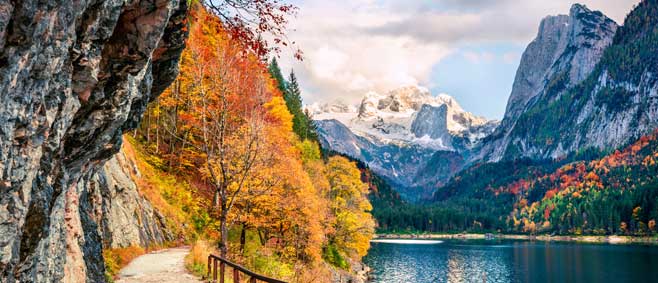
Natural Resources
B.S.
Explore natural and social sciences through a customizable curriculum that considers the interrelationship between our planet's resources and the human dimensions that impact them.
Forest biology and ecology Natural resource education Wildland fire ecology Landscape analysis Ecological restoration Conservation law enforcement Human dimensions in natural resources
Wildlife conservation officer Natural resources educator Extension agent Field researcher Forest, rangeland or wildlife ecologist Land-use planner Riparian, wetlands or watershed specialist
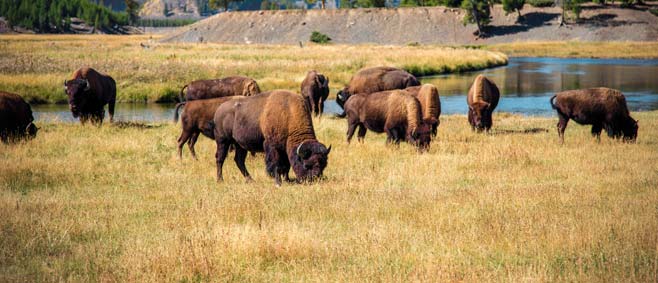
Rangeland Sciences
B.S.
Study the ecological, socioeconomic and policy aspects of rangeland management as you prepare yourself for a wide-open career in conserving and managing ecosystems and their resources.
Habitat management Sustainable livestock grazing systems Ecological restoration Rangeland stewardship Shrubland or grassland ecology Wildland plant identification Rangeland policy and economics
Rangeland management specialist Restoration ecologist Natural resource specialist Ranch manager Park manager Soil and water conservationist Conservation biologist Game enforcement

Sustainability
B.S. (Postbaccalaureate or double degree)
Gain interdisciplinary expertise in sustainable practices through this double-degree program, and build a career that can impact all aspects of global business, politics, economics and society.
Human impacts on ecosystems Sustainable supply chain management Environmental sociology Natural resource economics Sustainable communities Carbon and greenhouse gas management
Sustainability coordinator Strategic planner Sustainable waste, energy or water manager Environmental monitoring and assessment Urban planner Sustainability researcher Ecotourism

Tourism, Recreation and Adventure Leadership
B.S.
Learn how to facilitate outdoor experiences that respect and protect natural resources and cultural heritage. Gain real-world skills from a program focused on sustainability, justice and equity.
Land use planning Natural resource management Environmental interpretation Program management Sustainability Accessibility in outdoor recreation Public lands policy
Outdoor educator Ecotourism manager Naturalist Park ranger Natural resource planner Recreation manager Outdoor adventure guide
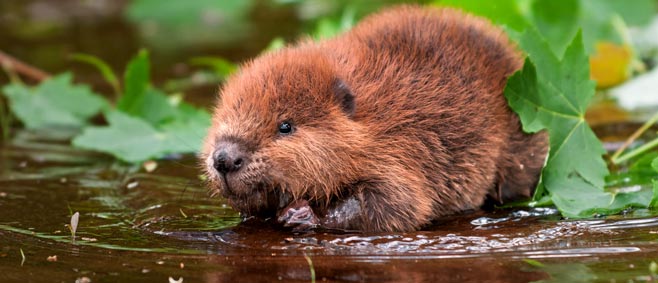
Zoology
B.S.
Study the vast field of animal biology – from DNA to ecosystems – and gain a broad scientific foundation that will prepare you for a wide range of careers in the life sciences.
Invertebrate and vertebrate biology Animal behavior Population biology Environmental physiology Genetics and cell biology Ecology and evolution Conservation biology
Animal scientist Animal breeder Field biologist Conservationist Animal care and husbandry Laboratory animal research Curatorial and museum management
Undergraduate certificates (5)

Climate Change Solutions
Undergraduate Certificate
Gain a comprehensive understanding of the physical and social sciences behind climate change so you can develop the skills needed to create actionable solutions and seek climate justice.
Climate science Data analysis and modeling Impact assessment Mitigation strategies Conflict resolution Climate justice
Climate analyst Solutions consultant Environmental justice advocate Sustainability coordinator Climate change outreach coordinator Renewable energy specialist Technical advisor

Environmental Justice
Undergraduate Certificate
Develop the tools to understand and address the unequal distribution of environmental risks and benefits in a program that combines environmental science with social justice principles.
Environmental impact analysis Community engagement Social justice advocacy Resource management Policy analysis Conflict resolution
Community outreach coordinator Environmental policy analyst Sustainability consultant Land use planner Environmental education specialist
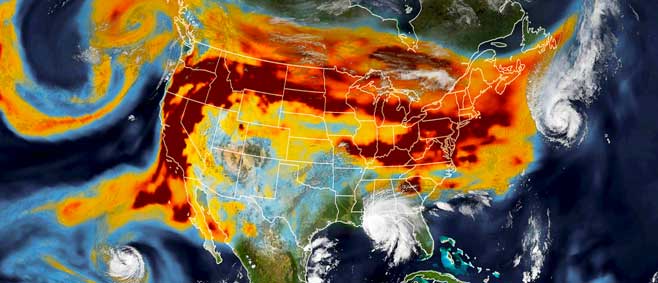
Geographic Information Science (GIScience)
Undergraduate Certificate
Discover how to use geographic information technologies, and develop a skill set that is highly valued in science, natural resources, government, industry and business.
Surveying Cartography Remote sensing Geospatial information Satellite image analysis Geovisual analytics Web mapping
Geospatial logistics analyst Transportation surveyor Mapping technician Field surveyor

Horticultural Therapy
Undergraduate Certificate
Gain the knowledge you need to design therapeutic gardens and provide care through the healing influence of nature for diverse populations who are facing health or emotional issues.
Therapeutic garden design Horticultural systems Plant propagation Human lifespan development Brain behavior Health psychology
Registered horticultural therapist Therapeutic horticulture practitioner Community garden coordinator Rehabilitation program coordinator
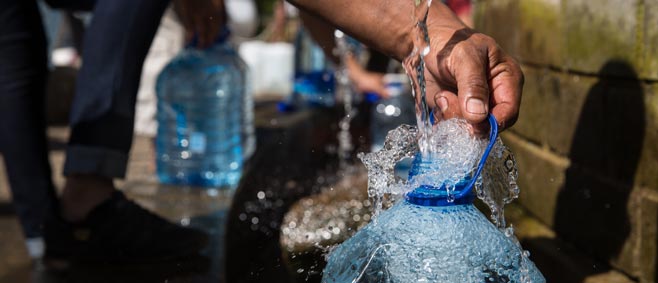
Humanitarian Engineering
Undergraduate Certificate
Build technical engineering skills and learn to analyze the social, environmental and economic context as you work with underserved populations to help gain safe access to vital resources.
Co-design Cross-cultural communication Interdisciplinary teamwork Community engagement Sustainability Social Impact
Humanitarian organization coordinator Conflict relief project manager Design engineer Non-profit director Multinational organization staff Research scientist
Graduate degrees (5)

Environmental Sciences
M.S. or PSM
Choose between two master’s pathways in the environmental sciences. Gain rigorous training and focus on research areas like ecosystem function and health, water and natural resources management, environmental policy, and future climate scenario impacts.
Biogeochemistry Climate change Ecological policy Environmental analysis Social science GI Systems Statistical analysis Physical hydrology Experimental design Ecology Quantitative analysis Watershed management Environmental education Sustainability assessment
Environmental protection specialist Hydrologist Restoration specialist Land use planner Environmental scientist Geospatial scientist Climate scientist Sustainability analyst Environmental consultant Watershed specialist Wildlife biologist Conservation scientist Predoctoral student
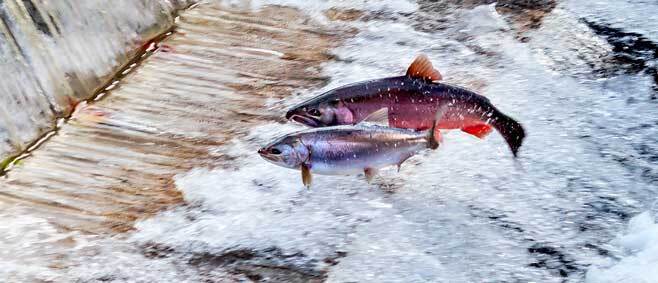
Fisheries and Wildlife Administration
PSM
Accelerate your career with advanced training in fish or wildlife biology, ecology, management and conservation. This program is ideal for professionals already working in fish and wildlife administration.
Wildlife behavior Ecological field methods Fishery biology Principles of wildlife diseases Habitat conservation Invasive species Aquaculture Wildlife population monitoring Managing wildlife in agricultural ecosystems
Wildlife biologist Conservationist Ecological planner Fisheries manager Biological technician Zoologist Wetland biologist Government agency ecologist Range manager Aquaculture farm manager Outreach coordinator
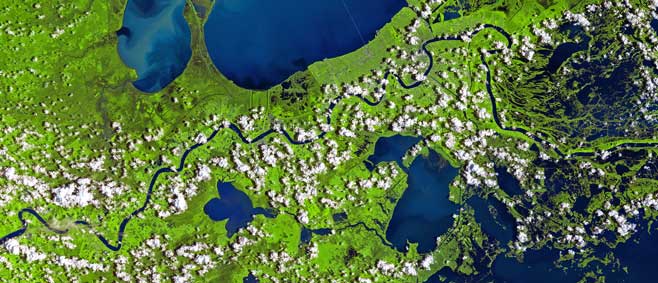
Geography and Geospatial Science
M.S.
Apply spatial data analysis to Earth systems and human-environment interactions to address issues ranging from climate resilience and environmental justice to transportation and public health.
Geographic data analysis Remote sensing principles and applications Advanced spatial statistics Web mapping Hydrology for water resources management Satellite image analysis Political ecology Conservation biology Planning for resilient communities Environmental assessment
Geographer Photogrammetrist Surveyor Spatial systems administrator Cartographer Remote sensing scientist GIS software developer Water resource specialist Wind energy development manager Geospatial intelligence analyst Urban planner Land use specialist GIS analyst
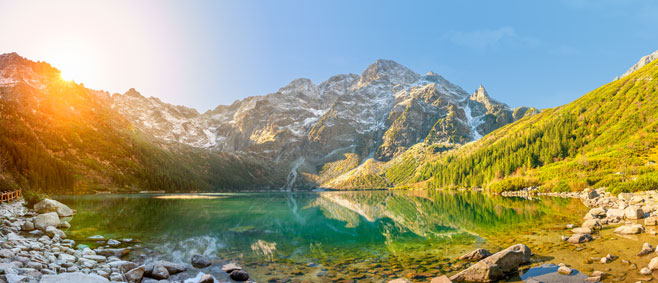
Natural Resources
MNR
Engage with customizable curriculum based on natural and social sciences as you learn to balance environmental, economic, health and cultural interests within the work of resource management.
Sustainable site planning Arboriculture Wildlife habitat management Remote sensing GIS Green infrastructure Social science research Science communication Water resources policy
Environmental policy analyst Forester Land use planner Recreation resource manager Natural resources educator Park naturalist Water conflict manager Natural resources manager Wildlife habitat specialist Extension educator

Wood Innovation for Sustainability
PSM
Gain expertise in wood science and technology as you study sustainable manufacturing, product design and material recovery in a non-thesis program that opens pathways to leadership roles.
Forest certification programs Environmental impact assessment Manufacturing and quality control Life cycle analysis Sustainable manufacturing practices Policy development for sustainability
Sustainability Manager Supply Chain Manager Policy Analyst/Advisor Quality Assurance Manager Product Development Manager Environmental and sustainability consultant
Graduate certificates (15)

Energy Policy
Graduate Certificate
Broaden your knowledge of U.S. energy policy, how it impacts the development of energy markets, and the technologies and resources currently in use and under development.
Renewable energy policy Energy economics Stakeholder engagement Policy implementation Energy policy evaluation Climate policy
Energy policy analyst Renewable energy project manager Legislative policy director Urban or regional planner Sustainability manager Business operations specialist
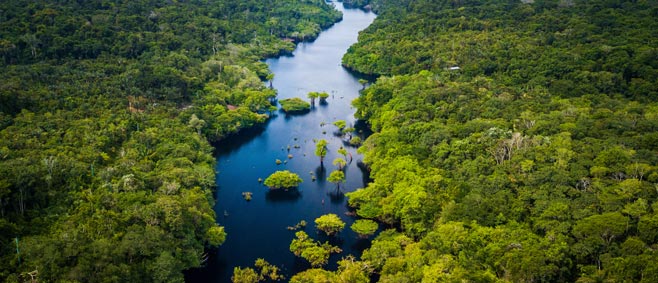
Environmental Management
Graduate Certificate
Help organizations build more sustainable practices with skills in environmental management systems, ESG reporting and investing, humanitarian engineering, green infrastructure and more.
Environmental analysis Sustainability assessment Project management Remote sensing ESG reporting Risk analysis ESG investing Green infrastructure Humanitarian engineering Environmental site assessment Project design
Environmental consultant Sustainability manager Environmental planner Environmental resource manager Land use specialist Business operations specialist Environmental compliance inspector Environmental economist

Fisheries Management
Graduate Certificate
Gain the practical skills in biology, assessment science and social science that you need to manage sustainable recreational and commercial fisheries in collaboration with scientists and policymakers.
Aquaculture Ocean law Freshwater ecology Coastal ecology Marine conservation biology Fisheries law and policy Ecological restoration Wetlands and riparian ecology Fish physiology Fisheries assessment Aquatic biological invasions
Fish ecology technician Conservation agent Policy planning staff Environmental affairs advisor Harvest management biologist Fisheries biologist Fish hatchery manager NGO outreach coordinator Land use planning assistant Parks manager

Forests and Climate Change
Graduate Certificate
Learn how climate change impacts forest ecosystems and approaches to improve forest management for climate change mitigation and adaptation.
Forest ecosystem management Forest genetics Managing greenhouse gas emissions Adapting forests to climate change Forest carbon analysis Carbon sequestration Market solutions to climate change
Climate change analyst Educator or consultant Conservation ecologist Carbon accounting specialist Adaptation planner Climate change impacts assessor Forester Research associate Conservationist
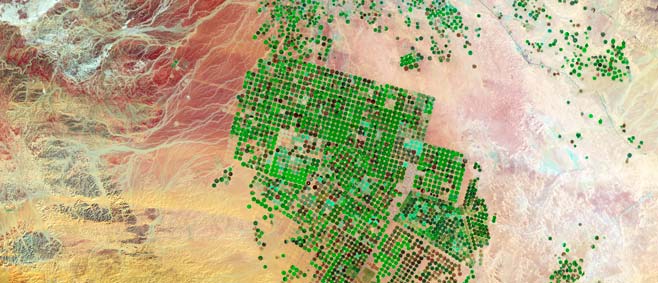
Geographic Information Science
GIScience Graduate Certificate
Develop skills in remote sensing, geospatial data collection and analysis, geovisualization and the use of machine learning to measure and model systems of human and environmental interaction.
Remote sensing Spatial statistics Photogrammetry Cartography 3D laser scanning Scientific visualization Digital terrain modeling Programming for GIScience Soil landscape analysis Spatial epidemiology
Cartographer Geographic data operations analyst AutoCAD/ArcGIS software developer Geographer Remote sensing specialist Research associate GIS technician or analyst City planner Photogrammetry technician Map specialist

Leading and Creating Change
Graduate Certificate
Using practical methods, develop professional leadership skills that are valued by organizations that prioritize social, organizational and environmental health and justice.
Interdisciplinary management Organizational performance Dialogue facilitation Change management Performance evaluation Conflict resolution
Human resources managers Training and development managers Education administrators Community health workers Marketing directors Fundraising directors

Mass Timber
Graduate Certificate
Develop expertise in sustainable construction, and gain skills related to mass timber products and the methods driving innovation in their production, design, fabrication and construction.
Wood product applications Digital design and prefabrication Manufacturing and quality control Sustainable material sourcing Supply chain management Integrated project delivery
Quality assurance managers Supply chain specialists Sustainability consultants Building code analysts Product development managers Market development specialists
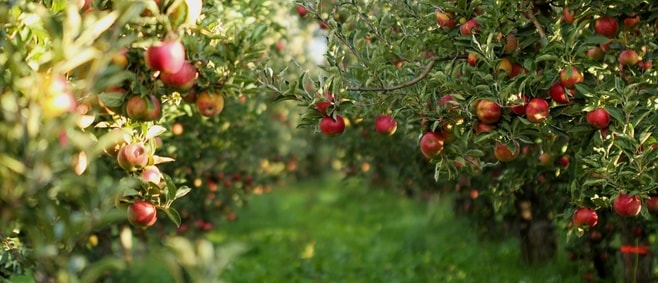
Organic Agriculture
Graduate Certificate
Grow your understanding of the science behind organic agroecosystems as well as your ability to manage them as you equip yourself for work in organic food production, policymaking or education.
Organic food production Organic soil management Local food systems Integrated pest management Organic animal production systems Plant breeding and seed production Organic beekeeping and honey production
Farm manager Nursery or greenhouse manager Organic grower Agricultural technician Crop consultant Extension agent Biointensive farmer Organic farming consultant Research associate Organic certification officer

Sustainable Natural Resources
Graduate Certificate
Gain a holistic view of sustainability as you tackle environmental, economic and social challenges that call for multidisciplinary problem-solving skills and a global perspective of resource management.
Environmental sociology Natural resources ethics Natural resources economics Ecological restoration Agroforestry Forest wildlife habitat management Integrated food, energy, water and climate policy Public lands policy and management
Forest resource administrator Rangeland specialist Land rehabilitation specialist Conservation biologist Environmental protection specialist Silviculturist Habitat conservation specialist Land use planner Biometrician Insect and disease management

Timber Circular Economy
Graduate Certificate
Study sustainable forest management, life cycle analysis and resource optimization, and learn via real-world applications that aim to reduce waste and enhance the competitive advantage of renewable resources.
Sustainable forest certifications Environmental impact assessment Material recovery strategies Life cycle analysis Service life planning Supply chain optimization
Sustainability manager Supply chain manager Environmental Compliance Manager Policy analyst Quality assurance manager Corporate social responsibility (CSR) manager
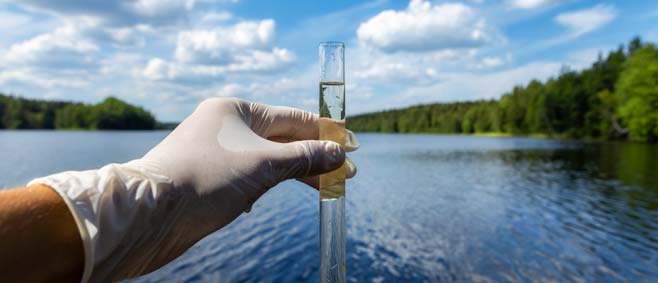
Toxicology
Graduate Certificate
Explore how toxins impact our environment, human health and food safety and learn how to determine and limit toxicity risks.
Fundamentals of toxicology Human health risk assessment Computational toxicology Public health Biological science Social science Science communications Biostatistics Environmental toxicology Molecular toxicology
Environmental toxicologist Food safety compliance officer Regulatory toxicologist Operations research analyst Biomedical technician Environmental analyst Product safety evaluator Environmental consultant

Urban Forestry
Graduate Certificate
Apply principles of forestry, green infrastructure, horticulture, urban planning and landscape architecture to the stewardship of planted landscapes and native forest remnants in and around cities.
Urban forest planning Green infrastructure Ecological restoration Urban forestry leadership Planning for resilient communities Arboriculture Wildland-urban interface management GIScience Environmental interpretation Ecosystem services
Urban forestry supervisor Tree planting coordinator City arborist Urban natural resource planner Community assistance forester Nonprofit director Urban and community forestry program manager

Water Conflict Management and Transformation
Graduate Certificate
Help communities manage a crucial natural resource as you facilitate water governance and conflict resolution, drawing on multidisciplinary expertise to balance ecological, social and economic interests.
Hydro-diplomacy Water governance Hydrology Pollution assessment Water resources economics Groundwater remediation Environmental law Bargaining and negotiation Finance administration Aquatic chemistry Watershed processes
Water resources director Water hygiene consultant Water treatment consultant Deputy water manager Resource analyst Wastewater network modeler Sales engineer Water resource specialist

Water Resources Engineering
Graduate Certificate
Study the hydrologic cycle and learn modeling and analysis skills, so you can help develop more sustainable solutions for water resources management.
Hydrologic processes Surface modeling Water resources system design River engineering Water quality management Watershed analysis Groundwater dynamics Numerical modeling Aquifer assessment Stormwater management
Hydrologist Water resources engineer Civil engineer Environmental engineer Hydraulics engineer Natural resources manager
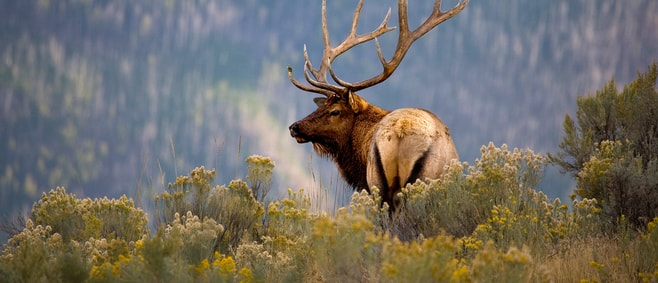
Wildlife Management
Graduate Certificate
Apply a range of applied sciences to manage wildlife populations, with a focus on practical skills that will help you balance habitat conservation and wildlife population dynamics with human dimensions.
Wildlife population monitoring Biological invasions Wildlife law and policy Ecological restoration Species recovery Wildlife behavior Urban ecology Natural resource ethics Riparian ecology Wildlife diseases Wildlife in agriculture
Conservation agent Harvest management biologist Wildlife technician Wildlife law enforcement officer Environmental affairs advisor Wildlife biologist Wildlife inspector and forensics specialist NGO outreach coordinator Wildlife reserve manager

B.S. in Fisheries and Wildlife Sciences

Contact us directly
Our knowledgeable staff of enrollment services specialists will answer your specific questions about Oregon State online degree programs, courses, the application process and how to get started.
8 a.m.–4 p.m. PT, Monday–Friday
Request
information
To ensure that you receive emails from us, please add "ecampus@oregonstate.edu" and these domains to your safe senders list: “@oregonstate.edu,” “@discover.oregonstate.edu” and “@email.oregonstate.edu.”
† All mobile information you share will remain confidential and will never be given to external sources. Any costs associated with receiving a text message are the responsibility of the individual receiving the message. Opting in to this mobile text messaging service from Ecampus is free of charge, however, message and data rates may apply from your wireless carrier.

